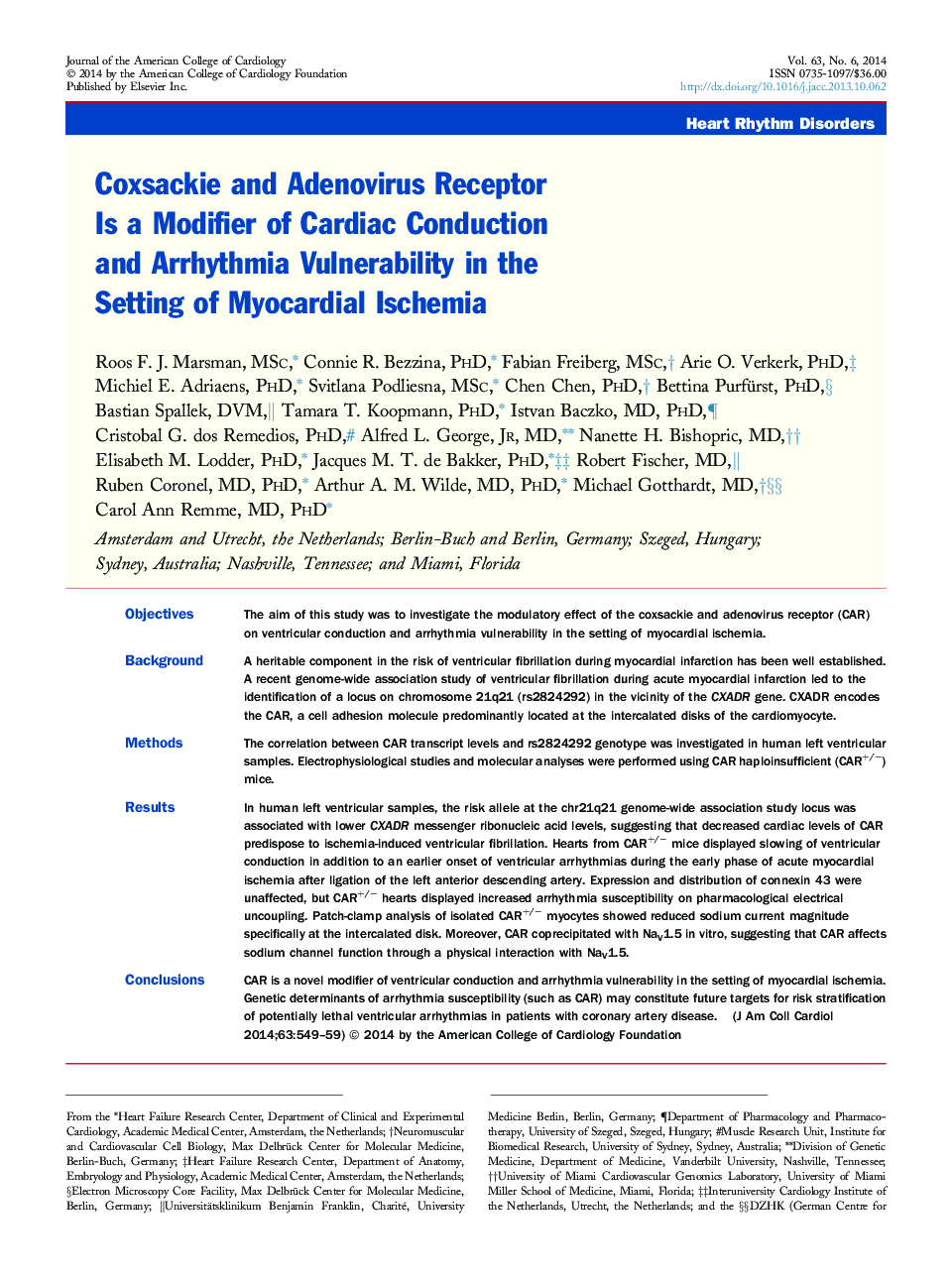| کد مقاله | کد نشریه | سال انتشار | مقاله انگلیسی | نسخه تمام متن |
|---|---|---|---|---|
| 2946000 | 1577118 | 2014 | 11 صفحه PDF | دانلود رایگان |

ObjectivesThe aim of this study was to investigate the modulatory effect of the coxsackie and adenovirus receptor (CAR) on ventricular conduction and arrhythmia vulnerability in the setting of myocardial ischemia.BackgroundA heritable component in the risk of ventricular fibrillation during myocardial infarction has been well established. A recent genome-wide association study of ventricular fibrillation during acute myocardial infarction led to the identification of a locus on chromosome 21q21 (rs2824292) in the vicinity of the CXADR gene. CXADR encodes the CAR, a cell adhesion molecule predominantly located at the intercalated disks of the cardiomyocyte.MethodsThe correlation between CAR transcript levels and rs2824292 genotype was investigated in human left ventricular samples. Electrophysiological studies and molecular analyses were performed using CAR haploinsufficient (CAR+/−) mice.ResultsIn human left ventricular samples, the risk allele at the chr21q21 genome-wide association study locus was associated with lower CXADR messenger ribonucleic acid levels, suggesting that decreased cardiac levels of CAR predispose to ischemia-induced ventricular fibrillation. Hearts from CAR+/− mice displayed slowing of ventricular conduction in addition to an earlier onset of ventricular arrhythmias during the early phase of acute myocardial ischemia after ligation of the left anterior descending artery. Expression and distribution of connexin 43 were unaffected, but CAR+/− hearts displayed increased arrhythmia susceptibility on pharmacological electrical uncoupling. Patch-clamp analysis of isolated CAR+/− myocytes showed reduced sodium current magnitude specifically at the intercalated disk. Moreover, CAR coprecipitated with NaV1.5 in vitro, suggesting that CAR affects sodium channel function through a physical interaction with NaV1.5.ConclusionsCAR is a novel modifier of ventricular conduction and arrhythmia vulnerability in the setting of myocardial ischemia. Genetic determinants of arrhythmia susceptibility (such as CAR) may constitute future targets for risk stratification of potentially lethal ventricular arrhythmias in patients with coronary artery disease.
Journal: Journal of the American College of Cardiology - Volume 63, Issue 6, 18 February 2014, Pages 549–559